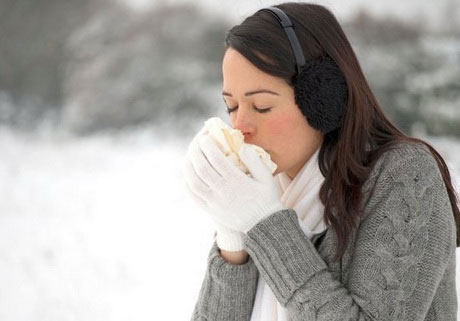If you suffer from a chronic illness, you must take more care of you in the winter. Read our tips if you want to get through the winter without health problems. In winter, we especially fear about colds and flu, but they are only a small part of the winter inconvenience.
Cold subject the body to adaptation processes, and these changes will affect especially those suffering from lung or heart disease. More specifically, the cold air causes vasoconstriction (narrowing of blood vessels), especially in peripheral arteries.
For this reason, the heart muscle is overworked, and blood pressure may increase sharply. In addition, subject to alternating hot-cold subject the heart to an adaptation process and because the need for oxygen is greater, the heart will pump more.
Therefore, hypertensive people, those with circulatory disorders and those with heart disease have a higher risk to heart attack, stroke or severe angina attacks during cold weather.
Cold is narrowing airways and therefore, the lungs will get a smaller amount of air. This is dangerous for those with asthma (can do more asthma attacks) and those with chronic obstructive bronchitis (several episodes of coughing).
Cold affects renal function. Therefore, people are predisposed to infectious diseases (glomerulonephritis, microbial cystitis).
Tips to stay away from such problems during winter:
Wear a hat, wool socks, scarf, gloves and shoes with thick soles to prevent excessive loss of heat.
If you have to do longer trips, enter some stores to stop and get warm for a while, and if you have heart problems, avoid a sudden shift from hot to cold air, especially in the morning and evening.
Wash your hands thoroughly for 20 seconds to kill the cold or flu virus.
Vent your home at least 10 minutes, in the morning and evening. Do not overheat rooms, because metabolism is demobilized, responding to temperature differences more difficult.
Alcohol does not warm up:
The people are told that if they drink during cold, they warm up. In reality, the effect is opposite. You immediately feel a slight temporary warmth, given the dilation of blood vessels, but just as quickly you also lose heat.
In addition, the risk of frostbite is increased in those who consume alcohol.

